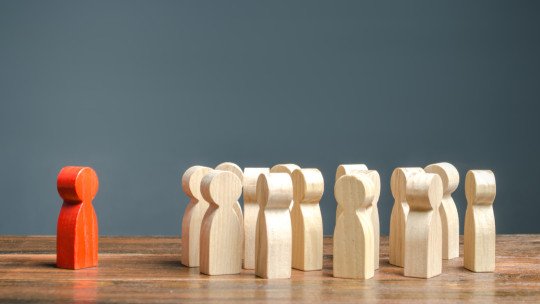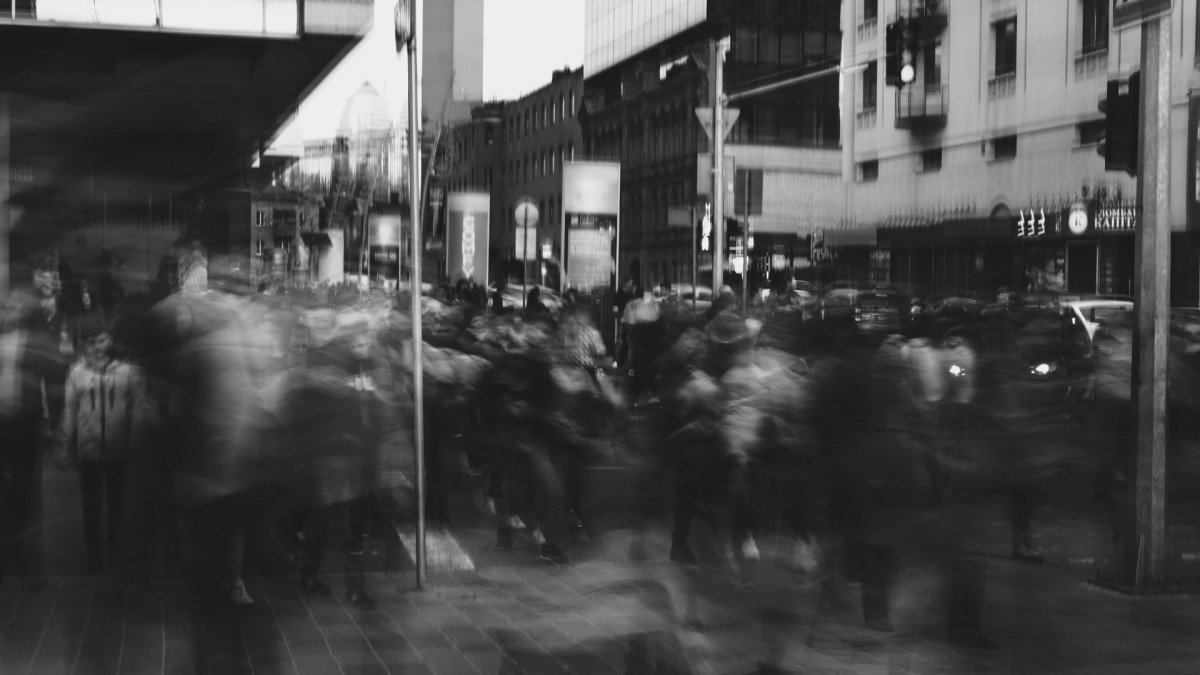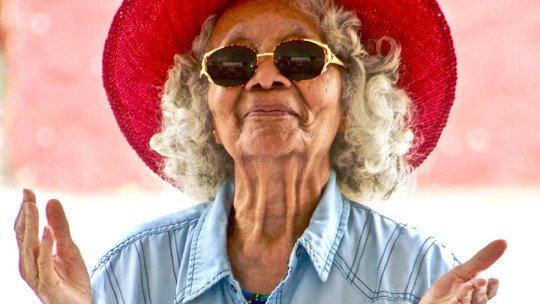
Society is increasingly connected and evolution is going in that direction. We enjoy all the benefits that connectivity offers us, from being able to talk and see our loved ones living many kilometers away, feeling that experience in real time, working, informing ourselves of the news at the moment it is happening, educating ourselves, research, learn and much more. Social networks and technology have made it easier for us to communicate instantly and virtually interact.
But along with these advances we find a paradox that invites us to stop: The apparent acceptance of diversity in lifestyles and personalities contrasts with persistent social pressure to be sociable and outgoing. While the idea is promoted that “everything is fine” and that you can be whoever you want to be, the reality is that there is some stigma associated with not being sociable or outgoing.
Discrimination of introversion
We are accustomed, and at a good time because this is a product of social progress, to think about discrimination by gender, by sexual choice, by social class, by political inclinations, but there is one that remains hidden among others of greater social importance.
Today it is very evident when people are pushed aside for some type of those choices or circumstances, but When discrimination falls on a personality characteristic, said exclusion is carried out in a more subtle but no less harmful way. This is hidden from view and is dismissed, but it is also discarded.
On the surface, social media and other media provide a platform for people to express their individuality and connect with others virtually. The idea that it is possible to build our identity online, show interests and establish relationships in a controlled environment is encouraged. Among younger people, the influencer profession is one of the most sought after since it not only gives “fame and recognition” but also money.
Supposedly money that comes without effort because I am “doing what I want” therefore has no consequences. It is unnecessary for me to expand here on the life testimonies and sufferings to which many of these young people, more or less famous, are subject. A new work niche for mental health care due to the excessive deployment of the private sector and due to so much exposure to the judgment of others. However, behind this facade of acceptance and freedom, certain social judgments persist, rooted in cultural expectations and social norms.
Being sociable and outgoing is still widely valued and rewarded. Extroverts are often seen as confident, charismatic, and successful in social interactions, which can garner admiration and respect from others. On the other hand, those who are more introverted or less sociable may face negative stereotypes, such as being perceived as shy, antisocial, or even selfish.
This dichotomy between the acceptance of diversity and the pressure to be social creates a dilemma for those who do not fit the “super social” mold promoted in almost all environments. Although we are told that we can be authentic and accepted as we are, the reality is that there is an unspoken preference for sociability and extroversion.
This discrepancy can lead to internal conflict, social anxiety, and a sense of alienation for those who do not conform to this implicit social norm. Recently, a 13-year-old patient felt very liberated when we were able to discover that she was not shy, and she was able to rethink the idea that for her, being shy was associated more than anything with not being accepted.

When we do not adapt to what society expects of us
Social insistence to meet the expectations and demands of others is a complex psychological phenomenon that affects many people in different aspects of their lives. From an early age, we face social pressures to conform to certain standards of behavior, achievements, and appearance, both personally and professionally.
This pressure can be subtle or overwhelming, exerted by friends, family, sometimes well-intentioned colleagues, and even society at large. The fear of being left alone if one does not meet these expectations can generate anxiety, stress and even affect people’s self-esteem and mental health. The germ of bullying or any type of discrimination is housed here.
Loneliness is like a ghost that hides in that not being sociable or charismatic, it is often perceived as a negative state, but it can also be reinterpreted as a defense mechanism against overwhelming social pressure and the difficulty in responding to it in an appropriate way. healthy way. When we find ourselves constantly bombarded by external expectations and demands, especially in an increasingly interconnected world and with increasing exposure through social networks, loneliness can emerge as an emotional refuge.
In this context, solitude can act as a necessary pause, a space to reflect, recover energy and reconnect with oneself. When we feel overwhelmed by social pressure, it can be difficult to discern our own authentic needs and desires from external expectations. Solitude offers us the opportunity to tune into our inner emotions, thoughts and values, allowing us to reevaluate our priorities and make decisions more aligned with our true selves.
It can also be a reminder of our autonomy and ability to resist outside influences. In a world where social validation is often sought through conformity to imposed norms and expectations, loneliness can be an act of resistance, a silent rejection of the pressure to fit into a predefined mold. By choosing solitude, we affirm our right to define our own identities and follow our own path, even if that means temporarily distancing ourselves from social connections.
This means that addressing this issue from mental health requires a thorough analysis, since even when it comes to loneliness that allows us introspection or is the product of isolation, it is something that we cannot downplay. Let us be attentive to ourselves and thoroughly verify our feelings since they are the ones who will guide us and tell us what is the measure of what is healthy for ourselves. Loneliness does not discriminate by age, and neither does social pressure.

Loneliness in the age of hyperconnectivity
Loneliness in the age of hyperconnectivity is an intriguing and paradoxical phenomenon. In a world where we are constantly surrounded by technology that allows us to instantly communicate with people around the world, it seems ironic that loneliness is an increasingly common problem. However, the reality is that hyperconnectivity does not always equate to a meaningful and satisfying connection with others.
Social networks and instant messaging platforms give us the illusion of always being accompanied. We may have hundreds or even thousands of friends online and constantly receive notifications that make us feel connected. But behind this digital facade, many experience a deep sense of emotional isolation.
One reason for this is that online connection tends to be superficial and ephemeral. Likes, comments, and emojis may provide instant gratification, but they rarely lead to deep, meaningful relationships. Additionally, excessive use of technology can lead to a disconnection from face-to-face interactions, which are critical to meeting our deepest emotional and psychological needs.
It is also true that outside of connectivity, if we want to create ties between other humans, our action has to be aligned with showing interest and empathy with the other. Individuality where we always expect the other person to be the one to propose the meeting should be left behind. When seeing the seemingly perfect lives of others on social media, it is easy to feel that our own lives are not up to par, that we have nothing interesting to say, or that our daily lives are too common for others, which can lead to a feeling of separation and loneliness. But most of the time we don’t need more than just being asked how we are in a sincere and affectionate way.
On the other hand, loneliness can also manifest itself even when we are physically surrounded by people. Fear of rejection, lack of social skills, or simply the feeling of not being understood can make a person feel alone even in a crowd. Ultimately, the key to addressing loneliness in the age of hyperconnectivity lies in seeking genuine and meaningful connections. This involves prioritizing quality over quantity in our relationships, cultivating empathy and mutual understanding, and spending time interacting face-to-face rather than simply through screens.
It’s also important to learn to disconnect from time to time, so you can be present in the moment and in the relationships that really matter. In a world where technology can be both a blessing and a curse in terms of human connection, finding a healthy balance is essential to combat loneliness and cultivate meaningful relationships.
However, it is important to recognize that loneliness as a defense mechanism can become problematic if it turns into chronic and harmful isolation. If loneliness lasts too long, it can contribute to feelings of alienation, depression, and anxiety. Therefore, finding a healthy balance between social connection and loneliness is essential for psychological well-being. This involves learning to set healthy boundaries, communicate our needs effectively, and cultivate relationships that support us rather than push us.
Although loneliness is often seen as a problem that primarily affects older people, statistics show that it is also a significant problem among younger adults, especially those who experience social pressures to be outgoing and constantly connected.
The paradox of the highly connected society lies in the discrepancy between the apparent acceptance of diversity and the persistent social pressure to be sociable and outgoing. Despite messages of inclusion and authenticity, not being sociable is still seen with a certain stigma in many social contexts. This conflict between acceptance and social pressure raises important questions about the true nature of human connection and the need to recognize and value the diversity of lifestyles and personalities.









